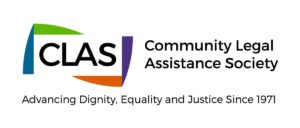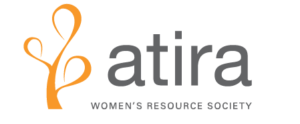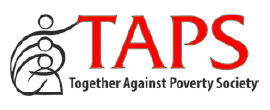Follow-Up Letter to Minister Simpson Re: COVID-19 Supports for PWD and Income Assistance
We appreciate Minister Simpson’s quick and responsive action for people with disabilities, low-income workers, and others depending on income assistance to meet their needs. We want to ensure no once falls through the cracks during this pandemic, including people relying on CPP-D, sex workers, street vendors and binners. We also ask the Minister to ensure that everyone who needs to access the BC Ministry of Social Development and Poverty Reduction, can do so safety, and without barriers – even if they don’t have a phone, or a computer, or rely on the help of an advocate.
– Amber Prince, Staff Lawyer
Download the full letter to Minister Simpson here
Hon. Shane Simpson
Minister of Social Development & Poverty Reduction
PO Box 9933 Stn Prov Govt
Victoria BC V8W 9R2
SDPR.Minister@gov.bc.ca
April 7, 2020
Dear Minister Simpson:
RE: Follow-up Concerning COVID-19 Supports for PWD and Income Assistance
We are so pleased to see that the Ministry of Social Development and Poverty Reduction has addressed many of the issues set out in our letter of March 24th – the recently announced COVID-19 measures will be critical to many of our clients in the coming months. We also appreciate you taking the time to meet with us on April 2nd to discuss our concerns.
We have several follow up questions related to the Minister’s April 2nd announcement and other COVID-19 supports for income and disability assistance recipients.
1. CPP-D Recipients
We would like to know what supports the Ministry will provide to people who receive federal disability assistance (i.e. CPP-D). This encompasses people with chronic illnesses and others who may have acquired a disability later in life after having worked for a number of years.
These recipients fall into two groups:
(a) First, there are CPP-D recipients who are currently on the Ministry’s caseload under the medical services only (MSO) category. These are former recipients of disability assistance or PPMB benefits, so they have PWD or PPMB designation, but their CPP-D benefits exceed their PWD entitlement, so they don’t receive shelter and support benefits. They receive medical services in recognition of their ongoing entitlement to assistance from the provincial government.
Will MSO clients be eligible for the $300 COVID crisis supplement?
(b) The second group is those that applied for CPP-D first, and were deemed ineligible for PWD because their CPP-D income is too high. These CPP-D recipients do not receive any benefits from the Ministry (financial or medical), and are not on the Ministry’s caseload.
What supports will the provincial government provide for people with disabilities who are only receiving CPP-D benefits?
While we understand that CPP-D is a federal benefit, in our view the provincial government must act now to address this significant gap in income supports during the pandemic – CPP-D recipients are being left behind.
One approach might be to temporarily use the PWD rates plus the $300 COVID supplement to assess financial eligibility and provide a top-up to CPP-D recipients. This would create income equity for all British Columbians who are living with a disability. As CPP-D is already a qualifying criterion for PWD, people who receive CPP-D should not need to go through the usual application process to qualify for this benefit. CPP-D also defines disability in terms of employability, so most of the people in this group are not eligible for EI and many of the federal financial supports.
2. Remove caps on existing crisis supplements
As set out in our initial letter, we are calling on the Ministry to temporarily remove caps on existing crisis supplements.
Many of our clients are unable to access the supports they are accustomed to accessing (e.g. clothing donations, food banks, soup kitchens, etc.) due to the pandemic. Food security in particular is a major issue. While the moratorium on evictions will protect many people, we are concerned about others in precarious housing and those who are not covered by the Residential Tenancy Act. We think it is necessary for workers to be able to assess each case on its merits and decide what amount is necessary to keep people safe.
While we appreciate that the $300 COVID supplement will be issued for the next three months, expanding existing crisis supplements now would help many people who are already in financial crisis and cannot wait until the next cheque issue date.
Will the Minister immediately waive caps on existing crisis supplements?
3. Accessibility of Ministry services
We are pleased that Ministry offices will remain open for in-person services for the duration of the pandemic, with appropriate physical distancing measures in place. This is imperative for those Ministry clients that are unable to access services via phone or online (i.e. due to disabilities, language barriers, lack of access to phones or computers, etc.)
We have further concerns about access to services that we hope the Ministry will address. As you know, many of our clients do not have access to phones or computers and those who usually rely on libraries or community agencies for these items cannot currently do so. These clients will rely more than ever on advocates to access supports and services; however, many advocacy services are now providing phone and email services only due to the pandemic. Without meeting clients in person, it is difficult (if not impossible) to meet many of the Ministry’s documentary requirements.
We ask that the Minister issue a directive for all Ministry offices addressing the following:
- Allow phone and email client authorization of advocate representatives (in place of the usual signed release of information form), with that authorization lasting until the end of the provincial state of emergency (unless specifically withdrawn by the client);
- Waive documentary requirements wherever possible (e.g. monthly reports, shelter verification, information requests for clients “awaiting other income” such as OAS, etc.); and
- Receive documents sent by email (e.g. intake documentation, service requests, and Requests for Reconsideration). Many other government offices and Tribunals (e.g. EAAT, CRT, Human Rights Tribunal) have already moved towards this to prevent clients unnecessarily having to attend offices and permit advocates to continue to serve their clients remotely.
Further, we ask that the Ministry ensure there are sufficient staff to provide timely and safe assistance to clients by phone, email and where necessary, in person.
Will the Ministry commit to the accessibility measures set out above for the duration of the provincial state of emergency?
4. Undeclared earnings and federal CERB
We are also pleased to see that EI and CERB will temporarily be fully exempt, and will have no effect on regular income and disability assistance benefits.
As discussed during our meeting, we have remaining concerns about some highly marginalized people in the community who were working while on provincial benefits prior to the pandemic, but may not have declared all or any of their earnings to the Ministry (e.g. sex workers, binners). Many of these workers may qualify for CERB/EI, but are afraid to apply because of potential overpayments with the Ministry.
To put desperately needed money in people’s pockets during this crisis, we need to encourage people to apply for every support that is available to them, including the CERB/EI where eligible. In our view, the Ministry should support this by committing to not imposing overpayments for undeclared earnings on which COVID CERB/EI applications are based.
Will the Ministry commit to not pursue overpayments for undeclared earnings on which COVID-19 CERB/EI applications are based?
Thank you again for your willingness to engage with us on these critical issues. We look forward to hearing from you, and would welcome further opportunities to discuss.
Sincerely,
Erin Pritchard, Executive Director: Programs & Policy, Disability Alliance BC
Alison Ward, Lawyer, Community Legal Assistance Society
Amber Prince, Staff Lawyer, Atira Women’s Resource Society
Doug King, Executive Director, Together Against Poverty Society
The Rev. Dr. Carmen Lansdowne, Executive Director, First United Church Community Ministry Society
c. Kasari Govender, BC Human Rights Commissioner





